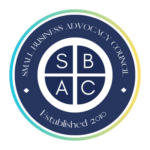Jumpstarting Chicago's Economic Recovery
The city of Chicago is facing unprecedented public health and economic challenges resulting from COVID-19. By executive order, by choice, or by necessity, many Chicagoans are starting and operating businesses from home during the pandemic. However, Chicago’s regulations make the home occupation license too complicated and too restrictive for these vitally important businesses.
With many Chicagoans out of work and businesses shuttering, the city needs to reexamine regulations governing home-based businesses (HBBs) and implement policy reforms that will help expand opportunities for HBBs. HBBs serve as the most accessible avenue to business ownership and contribute to the local economy. Most importantly, HBBs empower people to create their own economic opportunities, which will be crucial in jumpstarting the city's economic recovery from COVID-19.
Why should the city expand opportunities for Chicagoans to operate home-based businesses?
- HBBs foster new businesses and promote job creation.
- They afford people the ability to create their own economic opportunities where they may not otherwise exist.
- They provide the opportunity to start a business on a small, affordable scale, with the potential to outgrow the home and become a traditional brick-and-mortar business.
- HBBs can offer more professional and personal flexibility than traditional workplaces and business models are able to provide.
- They allow people with family obligations e.g. caring for young children or an elderly relative to work flexible hours.
- They provide people with physical disabilities or other health-related issues an avenue to support themselves.
- HBBs can provide financial security to small business owners and employees during an economic downturn.
- Unemployed or under-employed workers can start a business at home to help make ends meet.
- Small business owners can modify their operations to downsize from a commercial space into their home to reduce their overhead costs, keep their business afloat, and keep their staff employed remotely.
How do the city's current regulations create unnecessary roadblocks for HBBs?
Chicago, like many cities, has strict regulations governing HBBs for the purpose of preserving residential neighborhoods as a sanctuary from the commotion of commercial and industrial areas. However, many of these regulations hinder entrepreneurs’ ability to run their businesses even when they do not impact the neighborhood. The regulations are also ill-suited for today’s economy, especially in the economic crisis caused by the COVID-19 pandemic.
- HBBs are subject to total floor area limits of 10% for single-family homes and 15% for multi-family homes or an absolute cap of 300 square feet - whichever is smaller.
- Requiring a music teacher in a studio apartment to squeeze a piano into 15% of a small footprint is unfair and doesn't make sense.
- Garages and sheds are prohibited from being used to operate HBBs; entrepreneurs can only use them to store a very limited amount of business supplies or records, and the use of these spaces is counted towards the home square footage caps.
- A photographer could be cited for using their garage to set up professional backdrops and lighting equipment for photo shoots.
- Shelves and racks cannot be used to display goods for sale; this is unnecessary and harmful to HBBs.
- A quilt maker could be cited for displaying fabric choices on shelves and quilts on racks.
- Certain occupations are prohibited as HBBs despite being able to comply with the requirements that an HBB is subordinate to the residential use of a home and does not negatively impact the neighborhood.
- Banning certain occupations e.g. fortune-tellers is outdated and unnecessary; they can be successfully operated as HBBs, provided they adhere to the home occupation regulations.
What budget-friendly policy solutions can the city of Chicago implement to support HBBs?
The city can implement revisions to the municipal code that will support home-based entrepreneurs while at the same time ensuring that an HBB remains subordinate to the residential use of a home and is not a detriment to the livability of the neighborhood.
Some revisions include:
- Eliminating the existing floor area limits and square footage restrictions.
- Permitting HBBs to operate within garages and sheds provided they do not unreasonably interfere with the livability of the home and neighborhood.
- Reducing the occupations that are prohibited from operating as HBBs: construction or landscaping businesses that store goods & materials; vehicle dispatch businesses; and fortune-telling/astrology reading businesses.
